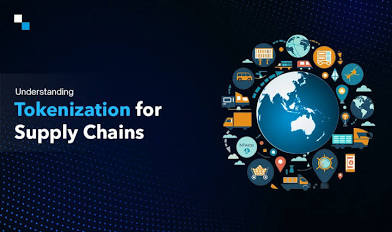IT IS YOUR MONEY
Blockchain for Transparent Supply Chains
Blockchain is enhancing supply chain transparency by providing immutable, real-time tracking of goods from origin to consumer. Industries like food, pharmaceuticals, and luxury goods use distributed ledgers to verify authenticity, prevent fraud, and ensure ethical sourcing. Walmart, Maersk, and IBM Food Trust are leading implementations that improve efficiency and consumer trust across global networks.

The Problem with Opaque Supply Chains
Global supply chains are complex, involving dozens of parties across multiple countries. Traditional systems rely on paper records, siloed databases, and manual audits—leading to inefficiencies, delays, and vulnerabilities to fraud.
Counterfeit goods cost the global economy over $500 billion annually. In food, mislabeling and contamination can endanger lives. In pharmaceuticals, fake drugs account for up to 10% of global sales, according to WHO.
Without end-to-end visibility, brands struggle to verify sustainability claims, ensure labor compliance, or respond quickly to recalls.
How Blockchain Brings End-to-End Visibility
Blockchain creates a shared, tamper-proof ledger accessible to all authorized participants—farmers, manufacturers, shippers, retailers, and auditors. Each step in the supply chain is recorded as a transaction:
Harvest date and location
Processing and packaging
Temperature logs during transit
Customs clearance
Retail shelf placement
This data can be linked to IoT sensors, QR codes, or RFID tags, enabling real-time monitoring. Consumers scan a code to view the full journey of a product—proving organic sourcing, fair labor, or carbon footprint.
Industry Leaders and Real-World Impact
Walmart partnered with IBM Food Trust to track leafy greens. After a 2018 E. coli outbreak, it reduced traceability time from 7 days to 2.2 seconds—enabling faster recalls and reducing waste.
Maersk and IBM launched TradeLens, a blockchain platform for global shipping. It digitizes bills of lading, customs documents, and container tracking, reducing processing time by 40% and cutting fraud.
In pharmaceuticals, Merck uses blockchain to track vaccine shipments, ensuring cold chain integrity and preventing counterfeits. In Africa, MediConnect tokenizes medicine provenance, helping patients verify authenticity via mobile apps.
Luxury brands like LVMH use blockchain to combat counterfeiting, while BHP tracks ethical mineral sourcing for electric vehicle batteries.
Benefits: Efficiency, Trust, and Sustainability
Blockchain reduces administrative costs, minimizes disputes, and accelerates dispute resolution. Automated smart contracts can trigger payments upon delivery verification.
Consumer trust increases—brands that offer full transparency gain competitive advantage. A 2023 Nielsen study found that 73% of consumers pay more for verifiably sustainable products.
Additionally, ESG reporting improves. Companies can prove compliance with carbon, labor, and sourcing standards using on-chain data.
The Future of Connected Commerce
As 5G, AI, and IoT converge with blockchain, supply chains will become predictive and self-optimizing. Smart contracts will auto-reorder stock, reroute shipments during delays, and distribute payments instantly.
The future of commerce isn’t just digital—it’s transparent, accountable, and built on trust.
To learn how blockchain can transform your supply chain with real-time traceability and compliance, visit DigitalAssets.Foundation and receive a FREE consultation.

More News
© 2026
